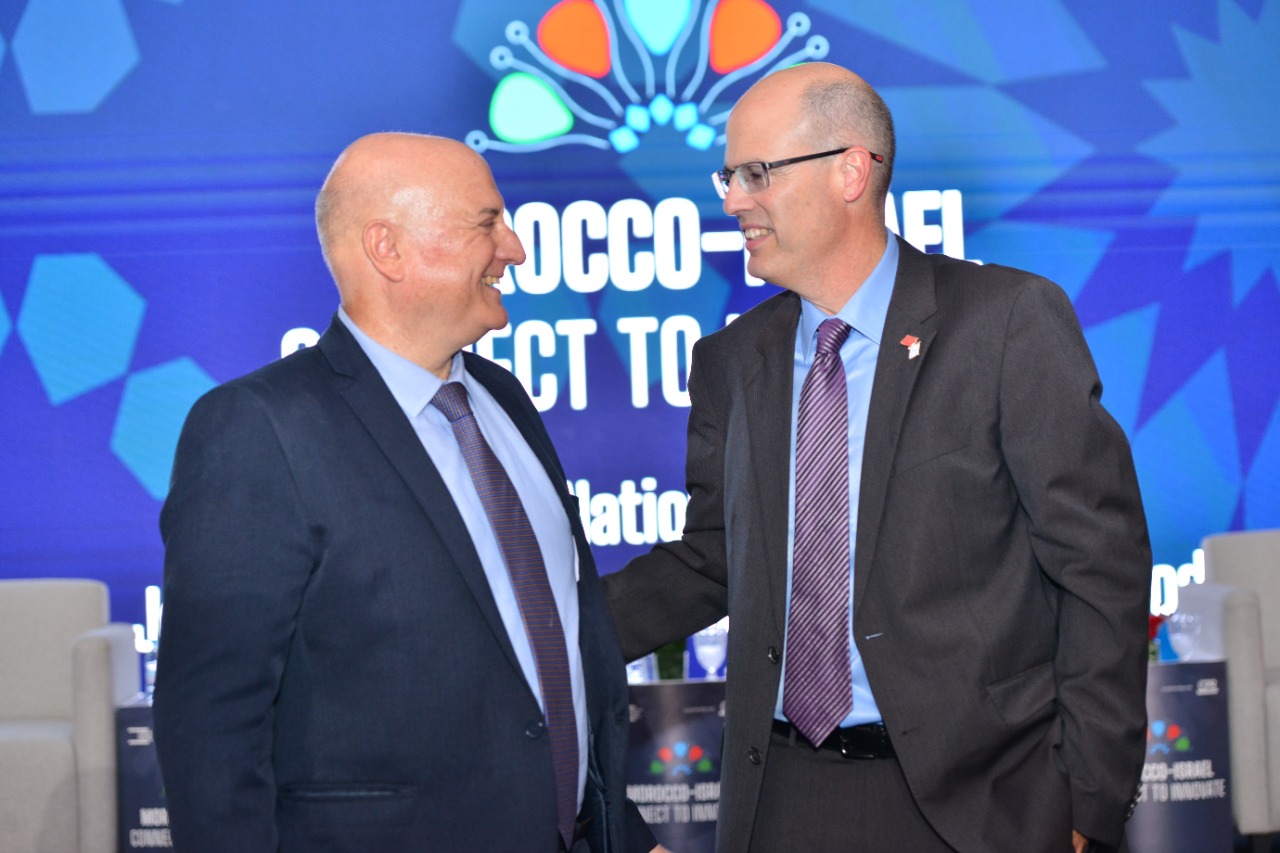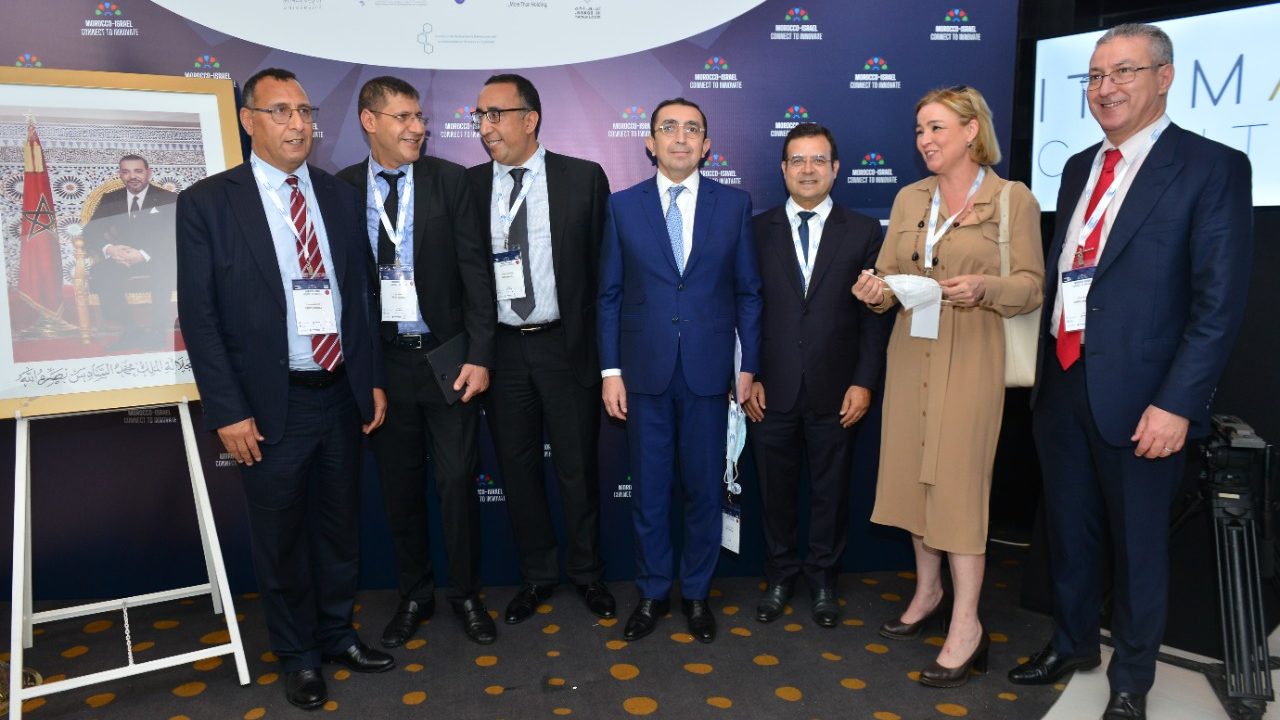Green Energy, Smart Water and Agrotech Star at Morocco-Israel Private Sector Forum in Casablanca
‘There is enough sun and wind to supply energy for all of the region’s needs,’ Israeli innovator says
This week’s Morocco-Israel Connect to Innovate conference in Casablanca saw business leaders and innovators from the two nations meet face-to-face to forge partnerships and advance the December 2020 normalization agreement’s pledge of “full diplomatic, peaceful and friendly relations.”
Monday’s opening ceremony featured 13 Memorandums of Understanding signed between Israeli and Moroccan businesses, government, and nongovernmental entities, in the fields of green energy, smart water, and agrotech.
The agreements aim to set in motion collaborations that tackle shared challenges in the aforementioned sectors, and in some cases take existing partnerships to the next level. They include exporting Israeli water production technologies to Morocco, cooperation in manpower training for tech companies, and partnerships to grow and export agriculture goods in Morocco.
The conference is an initiative of the nongovernmental organization Start-Up Nation Central, intended to bring investors and innovators from both countries closer together, and find tech solutions to regional problems.
Many of the topics addressed at the conference are major concerns not only for Morocco and Israel but for all countries in the region and beyond. Energy independence is one field where cooperation between the countries is already fruitful and growing.
“Morocco is very advanced when it comes to solar power,” Yosef Abramowitz, president and CEO of the Jerusalem-based Energiya Global Capital, which works to develop utility-scale solar fields in emerging markets, told The Media Line. “They already do it on a larger scale than Israel. But there is always an option to do more. Eventually, there is enough sun and wind to supply energy for all of the region’s needs.”
Asked how solar power might change the dynamics between countries in the region, he responded: “We are currently in contact with four African countries that don’t have ties with Israel but are very interested in the energy and water solutions Israeli companies can offer. If they benefit enough from it, we might see them developing ties, and eventually joining the peace accords. For that to happen we need to show results and demonstrate achievements.”
Abramowitz is involved in another large project, the African green belt initiative to build solar power plants, water desalination projects, and sustainable agriculture across all the Sahel countries.
“What we want to do is fight desert decimation, which is Israel’s expertise,” he explained. “With the renewed ties with Morocco, the gate to Africa is opening wider for us, even though we were here at a smaller scale before the Abraham Accords as well.”
The conference has been an opportunity for investors and innovators to build binational ties. Conversations at coffee breaks engaged Israelis and Moroccans at a fast pace, most of them meeting for the first time.
“When it comes to cultural gaps, there are no challenges at all. We and the Israelis get each other, everyone is very direct and easygoing. It’s just natural,” the head of a Moroccan funding bank told The Media Line. “The challenges are to find the right ideas and figure out the exact right way to execute them. That’s what we are here for.”
Several Moroccan officials were present at the opening ceremony and addressed the audience, including André Azoulay, a senior adviser to King Mohammed VI.
“I’m always optimistic about my country. I know we may not be at the head of all charts today, economically speaking. But I’m willing to bet that my children and grandchildren will live in a Morocco which is at the top of the charts. Today is the first step in this process. … The people sitting here are the hope for a better future,” Azoulay said in his speech at the opening.
Azoulay, 81, is Jewish. He previously advised Mohammed’s father, King Hassan II. Among other things, he is president of the executive committee of the Foundation for the Three Cultures and the Three Religions, based in Seville, Spain.
Israeli Ambassador to Rabat David Govrin also spoke at the opening ceremony, saying, “Israel and Morocco achieved a lot since we signed the accords. Now it is time for the private sector to get involved. This is what we hope to achieve in this conference.”

Israeli Ambassador to Rabat David Govrin and Start-Up Nation Central CEO Avi Hasson at the Morocco-Israel Connect to Innovate conference in Casablanca, Morocco, May 2022. (Start-Up Nation Central)
Israeli President Isaac Herzog sent his regards in a pre-recorded speech, in which he invited King Mohammed to visit Israel.
“I imagine a 10-year-old kid, somewhere in the Middle East, hearing about what’s happening in this conference: Israelis and Moroccans meeting, talking, planning a brighter future together. This kid will grow up knowing peace is within reach,” Herzog said.
In the streets of Rabat, support for binational cooperation is loud and clear.
“Jews always lived among us, and relations were always good. There’s no reason not to be close together. More agreements such as these are the smart thing to do: They mean more development, a better economy, and a better life for people in both countries,” Zakiyah, a Rabat local, told The Media Line.
“I think it’s also good for the Palestinians. The closer and more united we are, the better chance we have to bring Israel and the Palestinians together,” she added when asked about the kingdom’s approach to the Palestinian issue. “They too should benefit from the cooperation. I hope as many countries as possible will become part of these good relations.”
The writer is a guest of Start-Up Nation Central at the conference.


